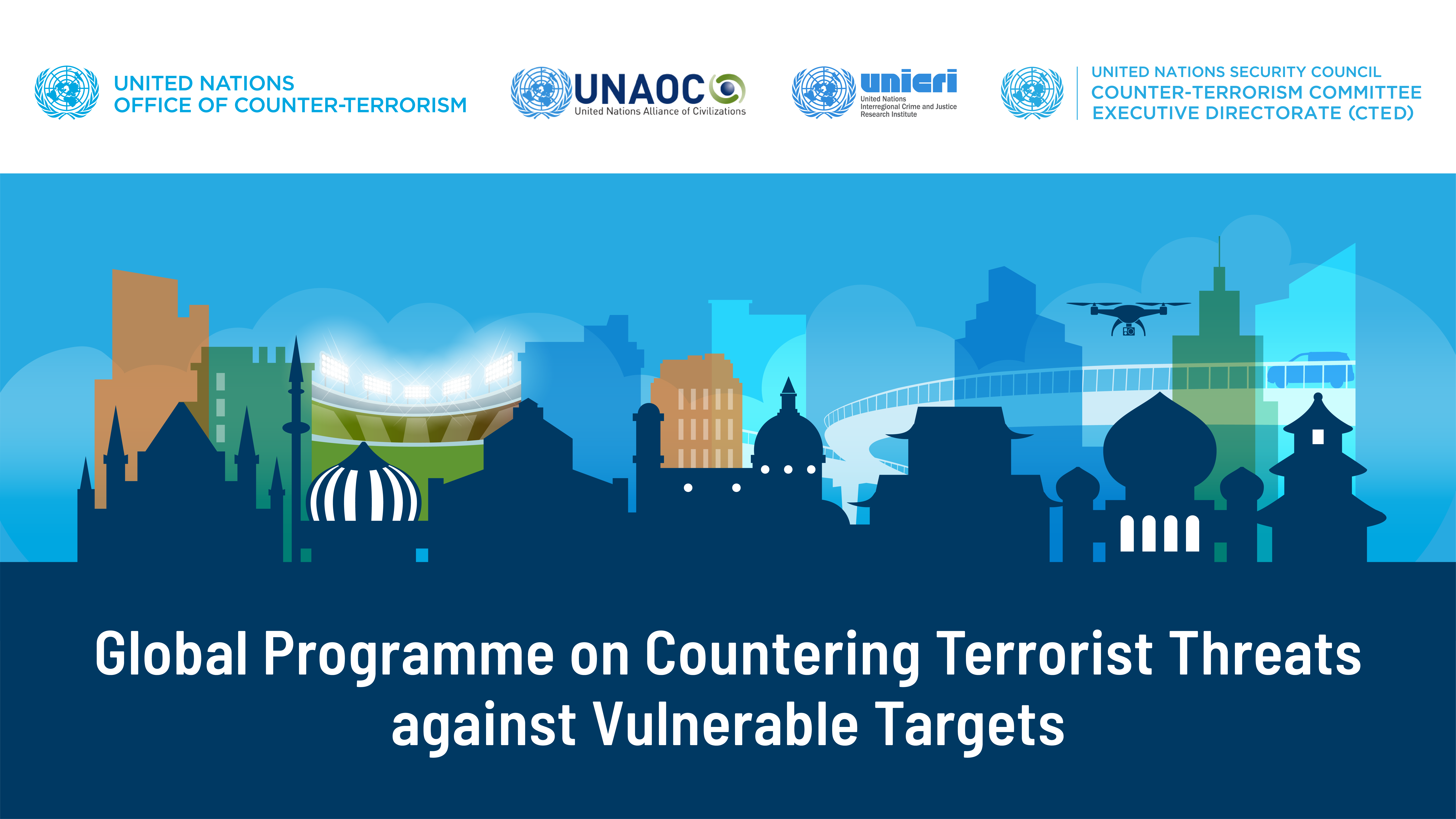International Expert Group Meeting on the Protection of Urban Centres and Touristic Venues

On 15 and 16 June 2021, the Global Programme on Countering Terrorist Threats against Vulnerable Targets held its second International Expert Group Meeting (EGM), after the first one held in January together with the launch of the Programme. While the first EGM focused on the protection of religious sites, this second one addressed threats against urban centres and touristic venues.
The EGM was opened by UNOCT Under-Secretary-General Vladimir Voronkov; H.E. Sheikha Alya Ahmed bin Saif Al-Thani, Permanent Representative of Qatar to the United Nations; Mr. Leoluca Orlando, Mayor of Palermo, member of the Executive Committee of the Global Parliament of Mayors; and Ms. Christine Knudsen, Director for External Relations, Strategic Planning and Knowledge, UN-Habitat. The meeting featured discussions between representatives and experts from Member States, the United Nations, international and regional organizations, specialized agencies, civil society, academia and the private sector.
Panellists shared experiences and discussed actionable good practices aimed at developing collaborative approaches on topics such as: regional approaches to the protection of urban centres and touristic venues; public-private partnership in the protection of touristic venues; lessons learned from recent attacks; and resilience, communication and support to victims. Participants also mapped existing mechanisms for capacity building, and identified gaps and main needs in both the policy domain and in the field of technical assistance.
The Global Programme on Countering Terrorist Threats against Vulnerable Targets is led by the United Nations Office of Counter-Terrorism (UNOCT), in partnership with the Counter-Terrorism Committee Executive Directorate (CTED), the United Nations Alliance of Civilizations (UNAOC), the United Nations Interregional Crime and Justice Research Institute (UNICRI), and in consultation with INTERPOL.
The Programme aims at identifying, gathering, and sharing policies to understand, prevent, and counter terrorist threats against vulnerable targets, including urban centres and major tourist venues, religious sites, as well as the threat posed by Unmanned Aerial Systems (UAS) through the production of a dedicated Compendium of good practices and practical guidelines. It also assists beneficiary Member States in the development of national strategy/action plans to protect vulnerable targets and provides operational training and mentoring services to support their counter-terrorism capacity.

